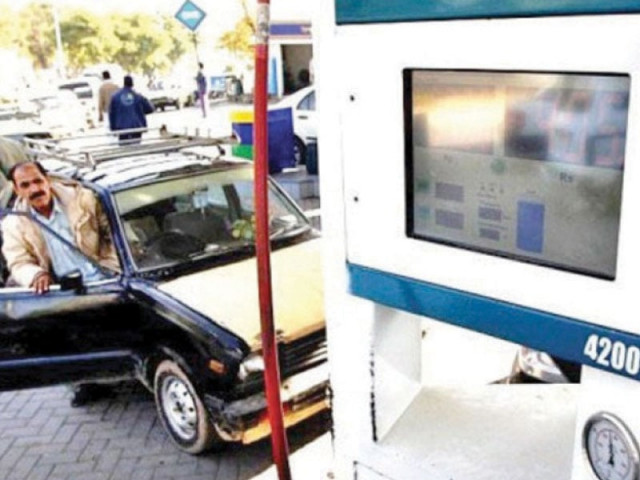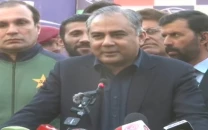9% additional GST: Govt may challenge CNG tax verdict today
Finance ministry officials say review petition has been drafted already.

26% was the sales tax rate imposed
on the purchase of CNG, as
compared to the standard
sales tax rate of 17%. PHOTO: FILE
The federal government is likely to challenge today (Friday) the Supreme Court decision which declared the imposition of 9% additional general sales tax (GST) on compressed natural gas (CNG) unconstitutional.
“The government, in all likelihood, will file a review petition [against the top court ruling] on Friday,” Federal Board of Revenue (FBR) Chairman Tariq Bajwa told The Express Tribune on Thursday.
According to an official of the finance ministry, a meeting was held on Thursday with Attorney General of Pakistan Munir A Malik to discuss how to proceed with the matter in the apex court. The officials confirmed the review petition had been drafted and would be presented before the court by the FBR.
Talking to The Express Tribune earlier, Finance Minister Ishaq Dar also hinted that the government could challenge the Supreme Court decision on the additional tax imposed on CNG consumers.
“The government is reviewing the Supreme Court judgment as it can affect the national exchequer,” Dar said. “Any decision which can adversely affect national interests will be challenged,” he added.
Earlier this week, the Supreme Court declared the additional 9% tax on CNG illegal and directed FBR to deposit the additional tax within three months. Against the standard 17% sales tax rate, the government is charging 26% on CNG under the pretext of discouraging the use of natural gas for transportation purposes.

The federal government has no lawful authority to impose or recover GST on CNG at a rate of 26%, the court maintained in its decision.
Finance ministry officials, however, said it was impossible to return the money collected from CNG consumers.
According to the details submitted in the court, the government was collecting Rs12.02 per kilogramme from CNG consumers in region-I. From region-II consumers, the government was collecting Rs10.22 per kg in sales tax.
If the government implements the Supreme Court judgment, the region-I consumers will get a relief of Rs4.16 per kg while region-II consumers will get Rs3.54 per kg relief in taxes, which have to be passed on through a reduction in prices.
During proceedings of the case, the apex court had asked the attorney general to place a comparative study of the taxes duly levied by the Finance Act, 2013 on record to ascertain whether the consumers of the petroleum products and CNG were being treated the same way as other taxpayers.
However, the gas consumers are unlikely to get any relief, as the government has planned to slap a 4% gas levy from January 1 under a condition imposed by the International Monetary Fund. The government estimated the measure would yield Rs130 billion in additional revenue in the remaining six months of the current fiscal year.
Published in The Express Tribune, December 13th, 2013.



















COMMENTS
Comments are moderated and generally will be posted if they are on-topic and not abusive.
For more information, please see our Comments FAQ